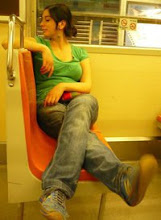
In general aspects, Modern Times is an interesting movie about the epoch of progress, social movements, technology and modernity. It is also an analogy between men and machines. Charles Chaplin, as the main character, works in a factory where he is forced to work hardly and in poor conditions. In fact, he is treated and manipulated like a machine. He does not have time to relax and even to eat, because factory’s productions take a relevant place in those times. In other words, his life is involved into tedious production routines that make him feel extremely stressful. As the story progress, Charles looses his job and is taken to jail. Finally, this man meets a poor young lady whom he falls in love. Sharing time together, they start a new life, thinking of in some possibilities to get a better quality of life. Regarding to this, the film shows us the expectations of them to get material things as a way to face their poverty, which is one of the major negative consequences of progress and modernity.
The most interesting about Charles Chaplin’s film is that he tries to represent the complex reality of society in those times, under an ironic but at the same time humoristic perspective. Through his film, we can identify relevant facts which are part of modernity. To illustrate, we can mention the machine’s invention that comes to take the place of that men used to, making human’s life easier, but at the same time men become a machine more like a person. Unfortunately, men’s happiness is focus on progress and this fact is deeply involved in Chaplin’s film. In the same way, there are many others facts which the director has developed very well, such as: the strong and difficult worker’s conditions, poverty, hope in progress and technological advances. Even though it is a silent film , we can pay more attention to details. We can appreciate Charles Chaplin’s talent using his body language, to communicate us his message. For all these reason that I have mentioned before, I totally recommend this film. We can realize about the powerful influence that modernity had had through time and how this has seriously affected our life in terms of progress as human beings. Moreover, I strongly believe that Modern Times film helps us to think about the role that we have in the world. As a result, I wonder if would we like to change our life system or would we like to live as human-machines like we have been doing for a long time? So, what is the real progress?










